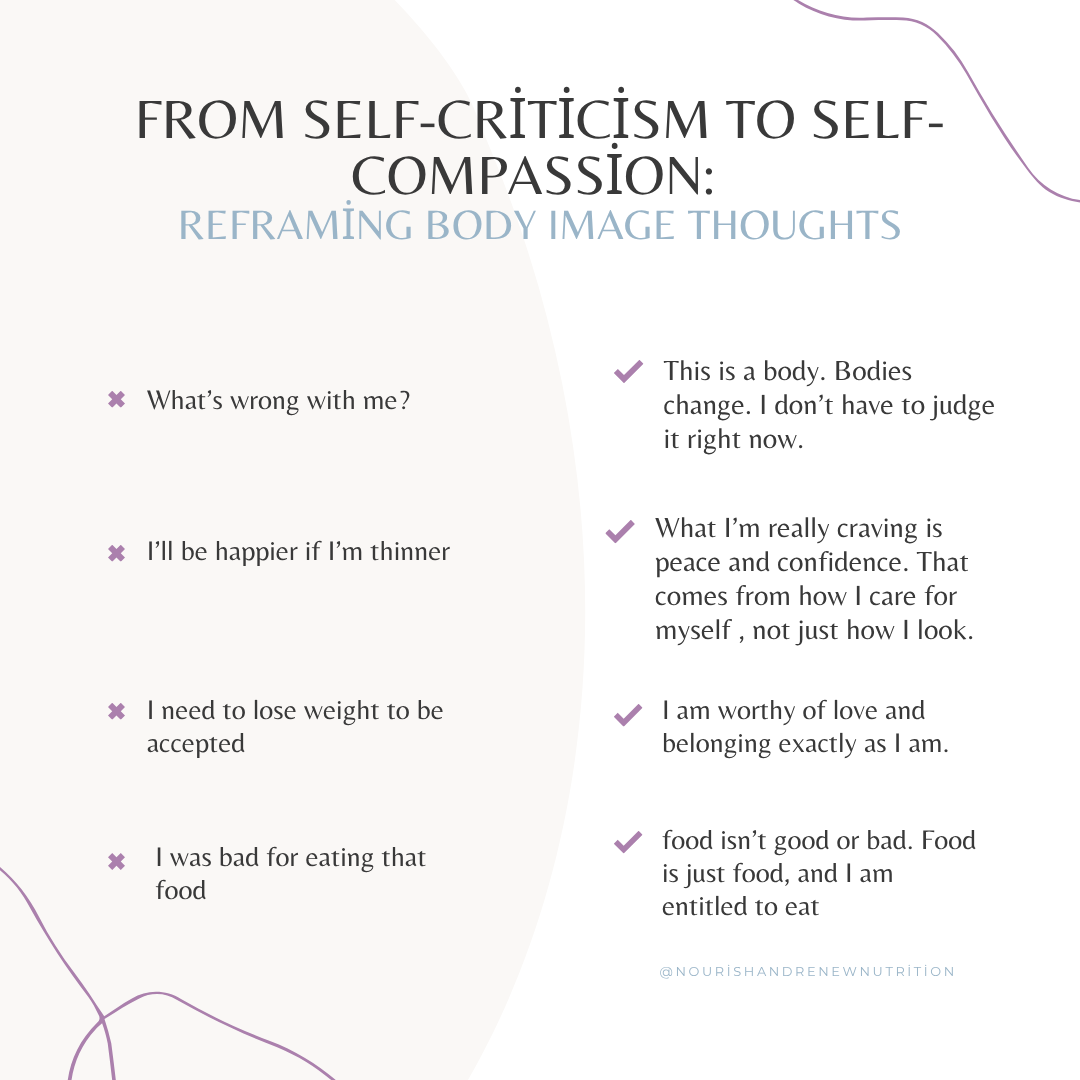Body Image and Mirror Checking: Why It Hurts and How to Let Go
Have you ever found yourself standing in front of a mirror, lifting your shirt, turning sideways, or pinching your stomach… maybe without even realizing you were doing it?
You're not alone.
Mirror checking, also called body checking is something so many individuals with disordered eating or body image struggles do, often without thinking.
It’s the moment where we zoom in on our reflection, searching for signs of change, “progress,” or reassurance… but most of the time we walk away feeling worse, not better.
And if you’re someone struggling with disordered eating, your relationship with your reflection can feel even more tangled.
It’s not just a glance.
It can become a ritual. A form of self-surveillance. A punishment.
Let’s work on healing that.
More About Mirror Checking
Mirror checking is a type of body monitoring behavior that can include scanning, measuring, pinching, or observing your body in mirrors or reflective surfaces, like windows or your phone screen, to check for perceived flaws or changes.
For some, this might mean spending long stretches analyzing your appearance.
For others, it’s a quick glance that somehow shifts your whole mood.
Sometimes you might avoid mirrors altogether. Other times, you can’t seem to stop looking.
But Why Do We Do It?
Mirror checking often comes from a deep desire for control, reassurance, or proof that our body, or we, are okay.
But what is it doing to us?
The more we check, the more we criticize… and the more we criticize, the worse we feel.
It’s a cycle. And it’s exhausting.
What Happens Emotionally After We Check?
You might notice:
You check your reflection in the morning and feel discouraged before your day even starts.
You catch a glimpse in a mirror and change your outfit… or cancel plans.
You feel triggered to restrict, purge, or overexercise after analyzing your body.
Over time, mirror checking reinforces the belief that your worth is tied to how your body looks, not who you are.
So… How Do We Shift This?
Let me be clear: healing body image doesn’t mean you’ll love every inch of your body every day.
That’s not the goal right now.
The goal is to create a more peaceful relationship with your body, one built on compassion, not control.
Here are a few gentle steps to get started:
1. Build Awareness (No Shame Needed)
Awareness is the first step in behavior change. So instead of trying to force yourself to stop mirror checking, try simply noticing when it happens.
Where are you?
What are you feeling?
What are you hoping to find?
2. Reframe the Thought
It’s not easy to challenge automatic thoughts, but it’s worth experimenting with.
Try:
It might feel awkward and uncomfortable and you might not fully believe it yet but that’s ok.
The goal right now, is to start practicing.
3. Change Your Environment
If mirror checking is constant, try covering up full length mirrors for a few days and notice how your mood or behaviors shift.
Many of my clients feel immediate relief like their brain gets some breathing room.
4. Tune Into How Your Body Feels (Not Just How It Looks)
You might feel like checking your reflection gives you feedback.
a way to gauge how you’re doing,
how much control you have,
or whether you’re “on track.”
That makes sense. It’s something so many of us have learned to do.
But here is the truth: you don’t have to rely on the mirror to tell you how you’re doing.
Your body is constantly communicating with you, not through how it looks, but through how it feels.
Try gently checking in with yourself throughout the day by asking:
Do I feel energized or drained?
Am I feeling full, satisfied, or still hungry?
What is my mood or stress level right now?
Have I had a moment to pause or breathe today?
These are real markers of well being, and they offer so much more useful information than a reflection ever could.
Your lived experience is valid.
Your body is wise.
You are allowed to make choices based on how you feel, not how you appear.
Remember:
You don’t have to love your body to treat it with kindness.
You don’t need to “fix” how you look to deserve food, rest, respect, or softness.
If you’re struggling with disordered eating or negative body image, please know this:
Your worth runs so much deeper than what’s reflected in the mirror.
Healing takes time! But you don’t have to do it alone. 💛
